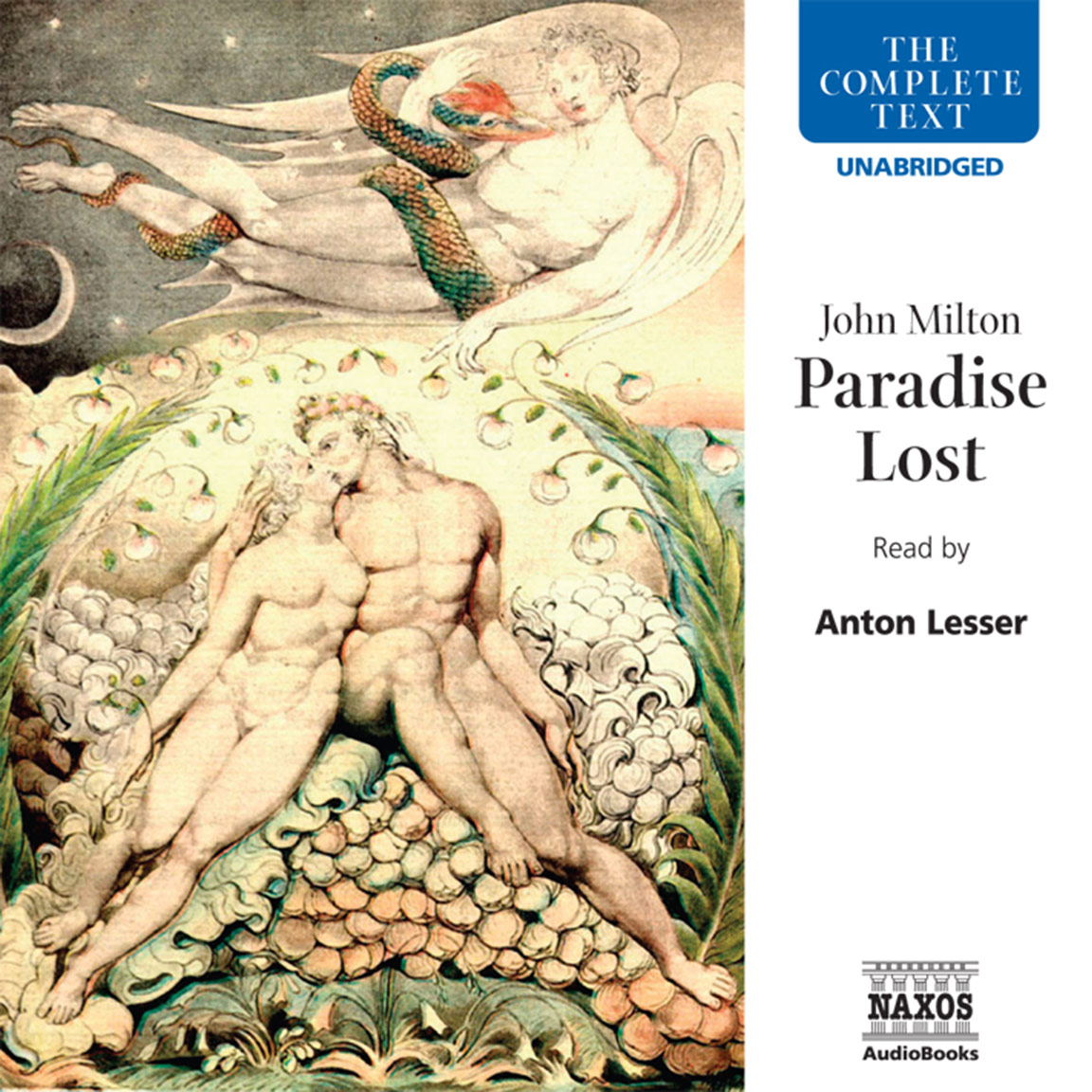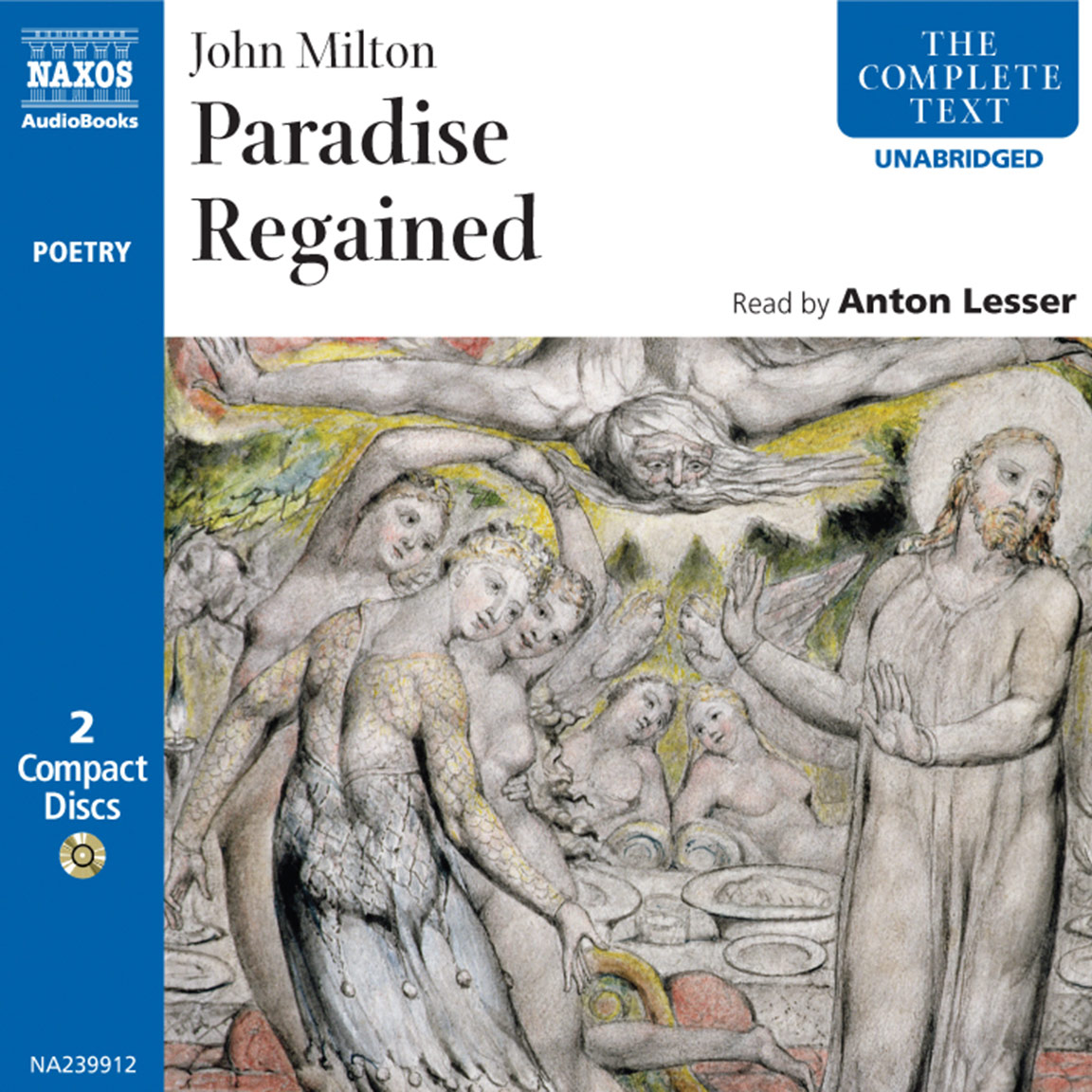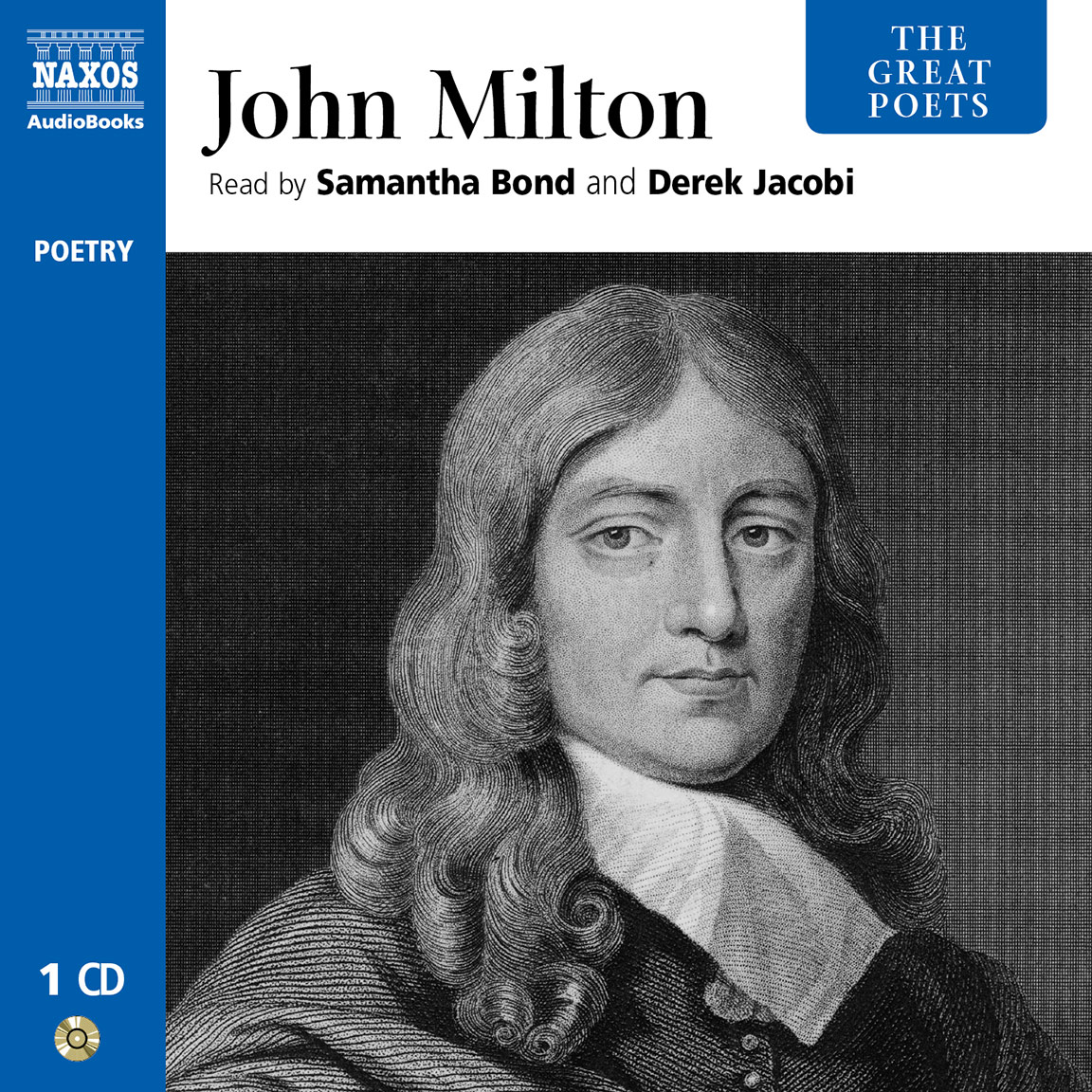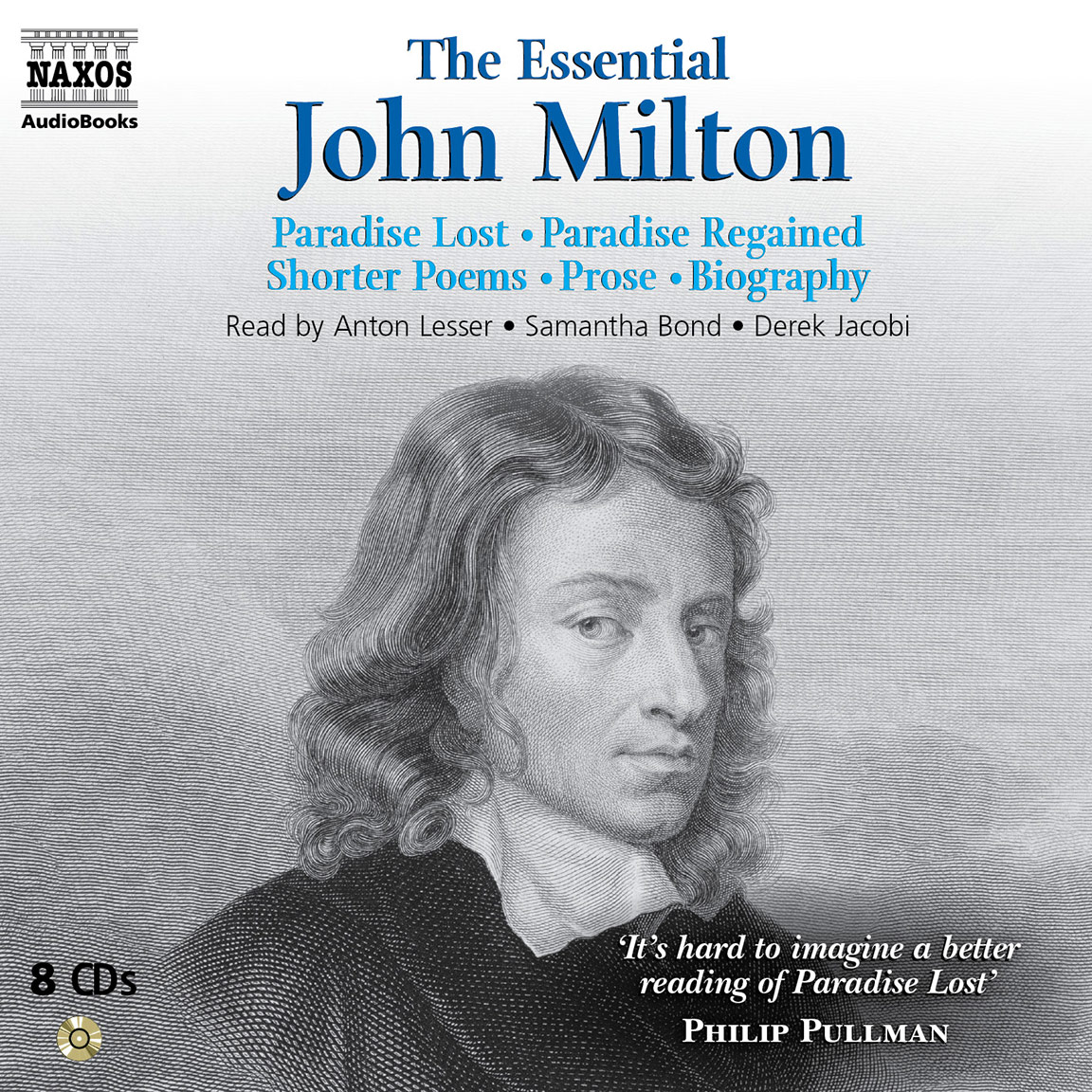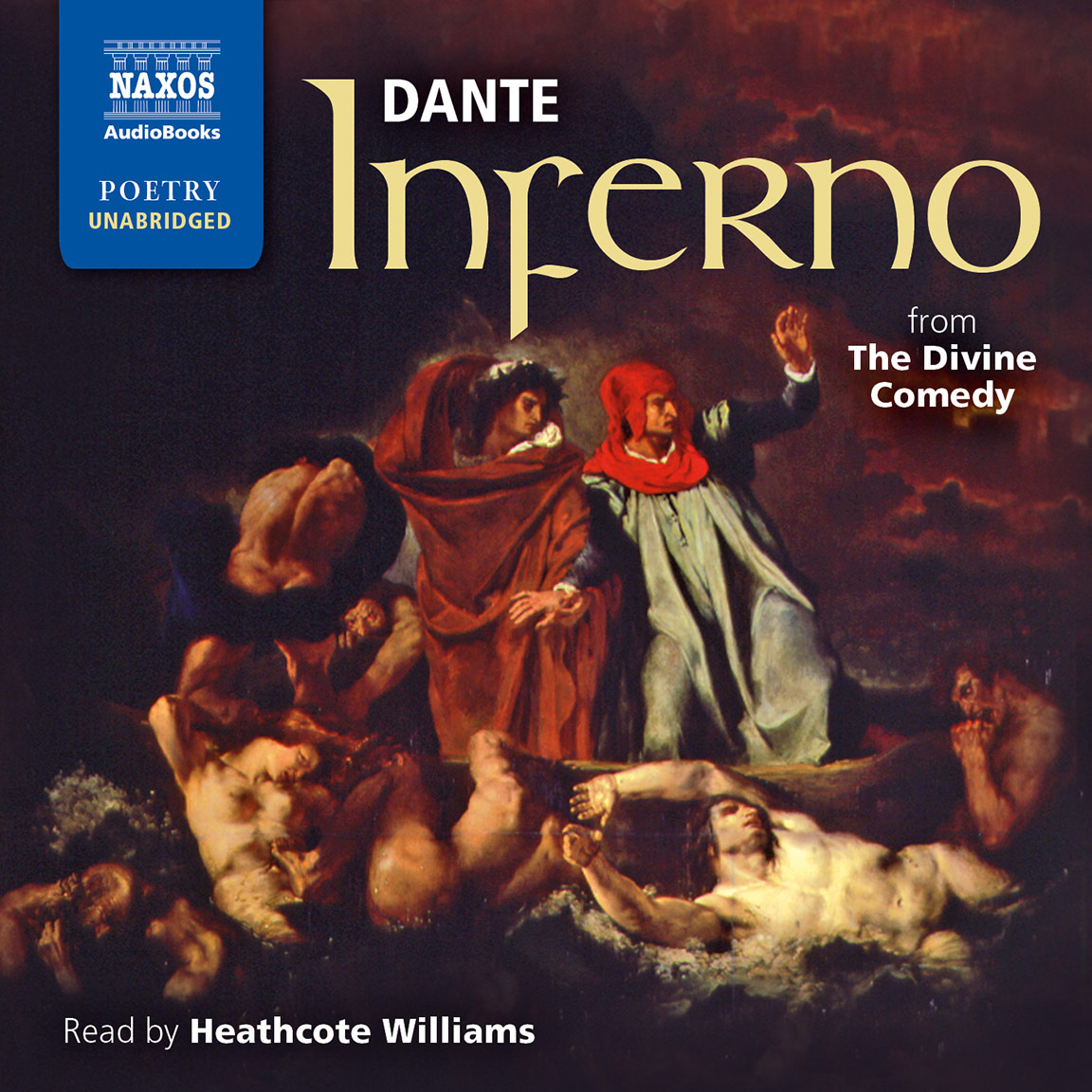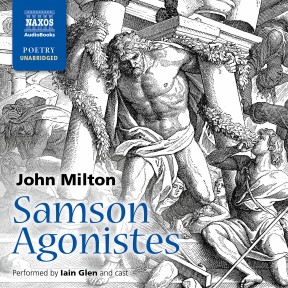
Audio Sample
John Milton
Samson Agonistes
Read by Iain Glen, David de Keyser, Samantha Bond, Philip Madoc, Matthew Morgan, Michael Maloney & Tim Bentinck
unabridged
Samson Agonistes, the ‘dramatic poem’ by John Milton, was published in 1671, three years before the poet’s death. Written in the form of a Greek tragedy, with the Chorus commenting on the action, it follows the biblical story of the blind Samson as he wreaks his revenge on the Philistines who have imprisoned him. A powerful subject, with a personal resonance for the blind Milton, it is a perfect work for the medium of audiobook where poetry and drama can be balanced equally. This production, adapted for BBC Radio 3, broadcast in 2008 and directed by John Tydeman, features Iain Glen in the title role, with Samantha Bond as Dalila, Philip Madoc as Harapha and Michael Maloney as the Messenger.

-
2 CDs
Running Time: 1 h 51 m
More product details
ISBN: 978-1-84379-802-6 Digital ISBN: 978-1-84379-803-3 Cat. no.: NA0164 Download size: 56 MB Directed by: John Tydeman BISAC: POE005020 Released: January 2014 -
Listen to this title at Audible.com↗Listen to this title at the Naxos Spoken Word Library↗
Due to copyright, this title is not currently available in your region.
You May Also Enjoy
Cast
- Iain Glen
- Samson
- David de Keyser
- Manoa
- Samantha Bond
- Dalila
- Philip Madoc
- Harapha
- Matthew Morgan
- Public Officer
- Michael Maloney
- Messenger
- Tim Bentinck, Simon Treves and Sean Barrett
- Chorus
Reviews
Winner of AudioFile Earphones Award
While Milton’s closet drama was not intended to be performed onstage, it could have been written for audio. Iain Glen and his supporting cast give listeners everything we need to follow this seventeenth-century disquisition on faith, duty, and blindness, both physical and moral. Glen’s Samson is agonised by guilt and faith but is energised out of his despair by the taunting visit of Delilah, wonderfully portrayed by Samantha Bond. The rest of the cast is nearly as good, making Milton’s iambic pentameter as understandable as ordinary speech, but more thrilling. Some of Milton’s attitudes (particularly toward women) may not be palatable to contemporary listeners, but this is a first-rate performance of a classic work.
D.M.H., AudioFile
Booklet Notes
To many, Milton appears to be perhaps the sternest and most forbidding figure in English poetry: a rigorous Puritan obsessed by sin and death, whose great religious epic, Paradise Lost, analyses the flaws and suffering of the human condition in a language that is pseudo-classical, cold, heavy and almost impenetrable. They think of his entire poetic achievement as divorced from human emotion, frozen into a kind of ornate heartlessness.
But in fact Milton was a proud, passionate man, all-too-human in his enthusiasms, his mistakes and his misfortunes. The more we know about his life and the more carefully we read his works, the more interesting he becomes. The identification of Milton with Samson, the hero of his last major work, is irresistible. Blind, humiliated, helpless, surrounded by his enemies, all his hopes and beliefs shattered, wondering if his tragic state means that his God has abandoned him, and wondering whether his life can be redeemed before death claims him – this is Samson in the poem, and it is Milton himself in his final years, living in Restoration London, the holy experiment of the Puritan Commonwealth, to which he had devoted his life, now consigned to dust, and he himself ignored by the godless Philistines who now ruled England.
This epic poem
is a vast
meditation on
divine
providence and
human freedom
John Milton (1608–1674) grew up in a wealthy and cultured London household, surrounded by music and private tutors. He was taught French, Italian, Latin, Greek and Hebrew, and was reportedly composing poetry at the age of ten. He went up to Cambridge in 1625, but two years later his proud, uncompromising temperament led to his being rusticated, although he did return to take his degree. This was an age when it was still possible to build a poetic reputation privately, and his early work was sufficiently admired for him to be invited to submit a poem on Shakespeare for publication in the Second Folio of the plays in 1632. Leaving Cambridge, he adopted no profession, but travelled in 1638–40 in France and Italy, mingling with learned men of all kinds, including Galileo. He returned on hearing the news of impending Civil War in England, explaining: ‘I thought it base that I should travel abroad at my ease for the cultivation of my mind while my fellow citizens were fighting for liberty.’
For the next twenty years, poetry was relegated to second place in his life, and he became a polemical writer on Church and State, and on intellectual and moral issues. Some of these polemics were personal, but many others were written in the service of the Puritan Commonwealth headed by Cromwell, which employed Milton as a secretary and ‘ideas man’. During this time, his private life was often in disarray. In 1642 he made a disastrous marriage with seventeen-year-old Mary Powell, who left him after only a few weeks. The true story of what happened between them we can only guess at, but it must have been a case of total incompatibility. In response to this personal trauma, Milton wrote several tracts demanding the reform of England’s divorce laws. Mary did eventually return to him in 1645, and bore him four children, three daughters, and one son who died. Mary herself died in 1652. He re-married in 1656, but his second wife and her infant also died. Meanwhile he had published tracts on government, arguing that it was lawful for a nation to depose and kill a tyrannical king, and tracts in favour of the publication of books free of state censorship.
The severest trial of these years however was his loss of sight. It had been failing for some years, and by 1652 he was irrecoverably blind. With iron willpower he continued his writing with the aid of amanuenses, among them his daughters, to whom this duty became a cause for rebellion and estrangement. It was in the late 1650s that he began to dictate Paradise Lost. He would compose in his mind perhaps as much as forty lines, often in the quiet of the night, then dictate them when day broke, revising them as they were read back to him. In spite of the crumbling of the Commonwealth, in 1659 and even in early 1660, he was still publishing tracts advocating the ideal of an anti-monarchical Puritan state, thereby placing himself in great danger. At the Restoration in May 1660, he went into hiding, but was arrested and briefly imprisoned in the Tower. He was probably fortunate to be pardoned, thanks partly to the support of other writers, including Andrew Marvell. In 1663 he was married for the third time, to Elizabeth Minshull, aged 24, who would outlive him by 50 years.
Paradise Lost grew steadily, and he had inserted into Book 7 the sombre words:
More safe I sing with mortal voice, unchanged
To hoarse or mute, though fallen on evil days,
On evil days though fallen, and evil tongues,
In darkness and with dangers compassed round.
This epic poem is a vast meditation on divine providence and human freedom, with the avowed aim of ‘justifying the ways of God to man’. Just as Adam had been expelled from Eden into a harsh and hostile world, so Milton and his kind had experienced the destruction of the godly republic, and were left facing a desolate future, having only the faith that a new order would one day arise to wipe out the sins and failures of the past. Paradise Lost was published in 1667, and it soon attracted the attention of the literary world for its sublime seriousness and the majestic beauty of its language. ‘Into the heaven of heavens I have presumed /An earthly guest,’ wrote Milton, and indeed once the ear had become accustomed to his idiom, it did come to resemble an unearthly music. One early reader, the poet Sir John Denham, is said to have declared it ‘the noblest poem that ever was wrote in any language or in any age’. By 1680 it had come to be regarded as the English national epic, rivalling Homer, Virgil and Dante.
While sharing something of this sublimity, Samson Agonistes is in many ways his most personal poem, as personal as the sonnet On His Blindness. ‘Agonistes’ means a competitor, wrestler, or athlete, and Samson, once mighty in physical strength, must now wrestle with the spiritual anguish of knowing that he was destroyed through his own sin and weakness, and must seek some means of redemption. The poem is modelled strictly on a Greek tragedy, although it is scarcely intended for stage production. It is concentrated in time and place, occupying only a few hours, and features a chorus which comments on the action. A succession of people visit Samson to mock him or commiserate with him, including his treacherous wife, Dalila. Through his colloquies with these people, Samson gives voice to his suffering, his contrition, and his sense of desolation, yet at the same time the revelation dawns on his mind that he may find redemption through one last heroic act, which must claim his own life too.
To the modern reader the poem is troubling in its misogyny, for Dalila here is cast almost in the role that Satan played in Paradise Lost, and Milton states openly that this is nature of woman – to debase man. Still more disturbing is the glorification of violence and killing in the service of God. In the last few years, commentators have pointed out that Samson’s actions and his self-justification are those of a suicide bomber, prepared to die so long as he can take his enemies – who are also God’s enemies – with him. Yet who can fail to be moved by his suffering, and his tragic lines:
O dark, dark, dark, amid the blaze of noon,
Irrecoverably dark, total eclipse,
Without all hope of day!
A revered classic for two centuries and more, by the early twentieth century Milton was falling from favour with many readers and critics, and his work was being described as a magnificent monument to dead ideas. Milton was proud, sensitive and rebellious, but profoundly religious and passionately committed to Christian culture and classical culture. His poetry unites intensity of faith with classical, formal powers of expression, like a baroque cathedral. To our radically different age, his cultural and spiritual allegiances offer a profound challenge, but his achievement, his extraordinary mind and his majestic language, will always endure as long as English literature is read and valued. We can never forget that at the heart of Milton’s work we sense his personal, anguished self-doubt. Was he, like Adam and like Samson, responsible for his own desolate condition? Had God turned his back on him? If so why? And when would that desolation end?
Notes by Peter Whitfield
